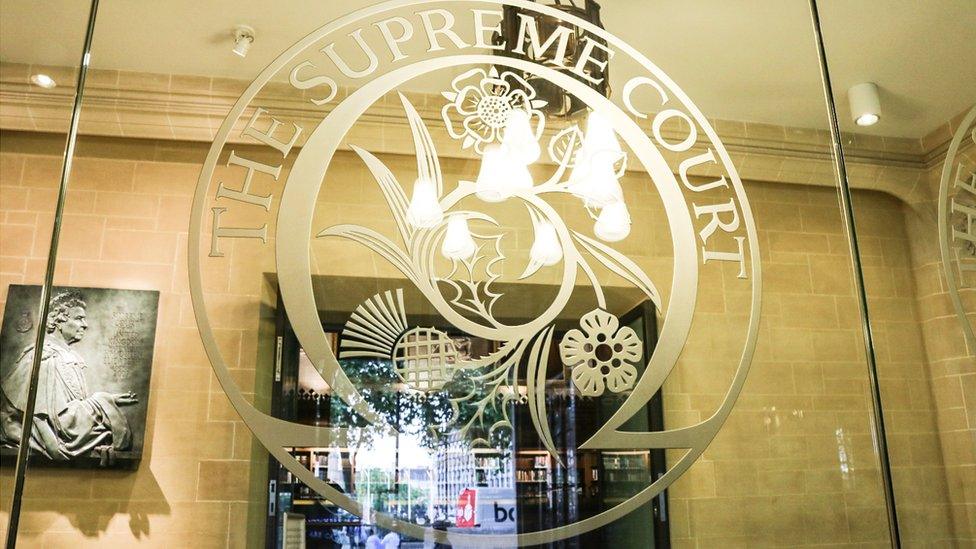UK government fails in Brexit case appeal bid
- Published

The Supreme Court is the UK's highest court
The Supreme Court has rejected a last-ditch attempt by the UK government to prevent European judges hearing a legal challenge to the Brexit process.
The European Court of Justice is to examine on 27 November whether the UK can unilaterally halt Brexit.
The government had asked the Supreme Court for permission to appeal against an earlier ruling that the case should be referred to the European court.
But the Supreme Court has now .
The case has been brought by anti-Brexit politicians and campaigners including Scottish Green MSPs Andy Wightman and Ross Greer, Labour MEPs David Martin and Catherine Stihler and SNP MEP Alyn Smith.
They argue that Brexit is "not inevitable" and "there is still time to change course". They are seeking a ruling on whether the UK effectively change its mind on Brexit and revoke Article 50 without the consent of the other 27 EU nations.
Welcoming the Supreme Court ruling, Mr Wightman said: "The question as to whether the UK Parliament can unilaterally revoke Article 50 is becoming more relevant as the chaos around Brexit shows no sign of being resolved.
"It is vital that Parliament is fully informed of all of its options."
Given guidance
The case was referred to the ECJ in September by the Court of Session in Edinburgh, which later refused to grant the UK government permission to appeal.
The Secretary of State for Exiting the European Union then applied directly to the Supreme Court for permission to appeal.
But on Tuesday, the Supreme Court said the Court of Session's ruling was "preliminary" and it would still have to reach a judgment on the matter after the European Court has given guidance.
A statement issued by the Supreme Court said: "It is clear that this interlocutor did not constitute a final judgment."
Why might this case matter?
Analysis by Glenn Campbell, 大象传媒 Scotland chief political correspondent
There are many what ifs with Brexit - and this one may also seem like a so what. So what if Article 50 is reversible? So what if it's not?
The UK government is determined to leave the EU because that is what the referendum decided, so the question of cancellation does not arise.
Yes, but what if the UK government changed its mind or a different government took over and set a different course (unlikely as these scenarios may currently appear).
In those circumstances, could the UK unilaterally cancel its request to leave?
That is the question the Scottish courts have referred to the European Court of Justice for advice, and the case the UK government tried to stop but will now be heard.
If the answer is no, then Brexit goes ahead (unless the UK and all 27 other EU countries agree otherwise).
If the answer is yes, then that opens up another possibility that will energise remainers and infuriate leavers.
Brexit no longer becomes a straight choice between Mrs May's deal and a no deal - no Brexit becomes an option too.